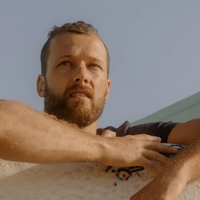Do you snore? Of course not. Much like peeing in the shower and faking orgasm, snoring is a behavior no one wants to admit to. Yet despite our protestations, snoring remains prevalent, occurring among an estimated 57 percent of men and 40 percent of women in the United States
And contrary to the comical way snoring has long been depicted in movies, cartoons and elsewhere, snoring is a serious concern, and symptomatic of the widespread and persistent problem of sleep deprivation that exacts a devastating toll on our health, relationships, productivity and overall quality of life today.
Put simply, snoring occurs when, during sleep, the muscles in the back of the throat relax, the airway narrows and the process of inhaling and exhaling becomes partially obstructed. The resulting sound has been compared to a tiny flag of soft tissue, fluttering away in the nasopharynx, proudly proclaiming, “No one in this room is going to get much sleep tonight.”
What a Bunch of Mouth-Breathers
Is snoring bad? As Stanford sleep surgeon Stanley Yung Liu, MD, DDS points out, snoring is just one manifestation of the core problem, which is mouth breathing during sleep. The human airway, he says, is designed for people to breathe through the nose, not the mouth, while we sleep.
“It's not just snoring—any mouth breathing at all is a sign of an obstructed airway,” Liu says. “It could begin with just mouth breathing, and then progress to snoring, which gets louder and louder and then, when things get really bad, you don’t snore at all. Then the airway closes completely until you build up enough carbon dioxide that it finally wakes you up, gasping for breath. So there’s a mouth breathing progression and snoring is just one part of it.”
For many, the first indication that they may have an issue with snoring comes from bleary-eyed loved ones, irritated roommates and, in severe cases, neighbors banging on the adjoining apartment walls. Obstructed breathing during sleep is a progressive condition that tends to worsen over time, however, and along the way may result in symptoms ranging from morning headaches, a sore throat upon waking and restless sleep to drowsiness and difficulty concentrating during the daytime.
Snoring’s No Laughing Matter
The biggest problem with our society’s dismissive attitude toward snoring, Liu says, is that even with medical research leading to greater understanding, many in the general public still downplay snoring as little more than what he calls a “social noise,” as opposed to what it really is: a major risk factor for serious health consequences, including hypertension, stroke, heart disorders, diabetes and depression.
Treatments have, thankfully, also advanced beyond the rudimentary responses to snoring from the past—which consisted mainly of either throwing a shoe at the offending snorer or insisting that he or she spend the night on the living room sofa. In milder cases, snoring can be addressed with behavioral changes, including cutting out alcohol and drugs, adjusting sleep position and weight loss.
In more severe cases a partially obstructed airway can be widened through either anti-snoring mouthpieces worn to bed or continuous positive airway pressure (CPAP) machines, devices that essentially pump air through a tube and into the airway via a mask worn over the nose. Using a CPAP device can take some getting used to, however, and mask wearers also have to become comfortable with going to bed looking like a fighter pilot.
When all else fails, surgery remains a viable and effective treatment option. Airway-related surgery can involve removing nasal polyps, correcting a deviated septum, or excising soft tissue and other blockages from the nasal passages. Liu compares such procedures to “clearing out the clutter” in one’s home to make moving from room to room easier.
Back to the Beginning
In an ideal world, we’d do whatever’s necessary to prevent a problem like obstructed breathing from cropping up in the first place. Unfortunately, Liu says, finding that “first place” can mean dialing back the clock to the day we come into the world and, more specifically, to the decision about how to feed us as infants.
“Breastfeeding is one of the best things to develop one’s airway because during breastfeeding the tongue pushes the nipple up hard against the upper palate and seals off the nose,” he says. “But when babies are bottle-fed, that sucking motion squeezes the face inward, whereas nursing expands the face and strengthens the muscles.”
Snoring and other signs of obstructed breathing during sleep are virtually unheard of among indigenous cultures, Liu says, and one key reason is that mothers nurse their children well past infancy. Meanwhile, in the United States, only 35 percent of babies are still breastfed at 1 year old.
“First we bottle-feed [many] kids in developed countries, and then, later on, they’re allergic to practically every single plant and rock, so their noses get clogged and they’re breathing through their mouths even more,” he explains. “And because of the narrower faces, kids need corrective orthodontia, which even further squeezes everything in.”
What bothers Dr. Liu the most about this cycle is how fixable it is, and yet the lack of understanding of young people’s sleep issues as they grow into adolescence leads to severe adverse effects on their mental health.
“Children with sleep apnea do not present with sleepiness, they present with hyperactivity,” he says, “which gets misdiagnosed as ADHD, so now we’ve got a ton of kids on Ritalin when the fact of the matter is they just don’t sleep well. So they grow up and now you’ve got a new generation of college kids and young people with depression and anxiety. You just wonder how many of these other issues they’re struggling with could have been avoided if we’d just ensured that they were breathing well during sleep.”
More Rest for the Weary
Based on the growing body of research on the long-term consequences of obstructed breathing during sleep, Liu feels it’s well past time for us to start admitting the truth—not only that yes, we snore, but that there are steps we can take to address the problem and improve our lives if we would only, well, wake up.
“We spend between a third and a fourth of our lives sleeping,” he says. “If I were to tell you that for a third to a fourth of your life I’m going to strangle you 30 times an hour, that’s a lot of years down the drain.”




